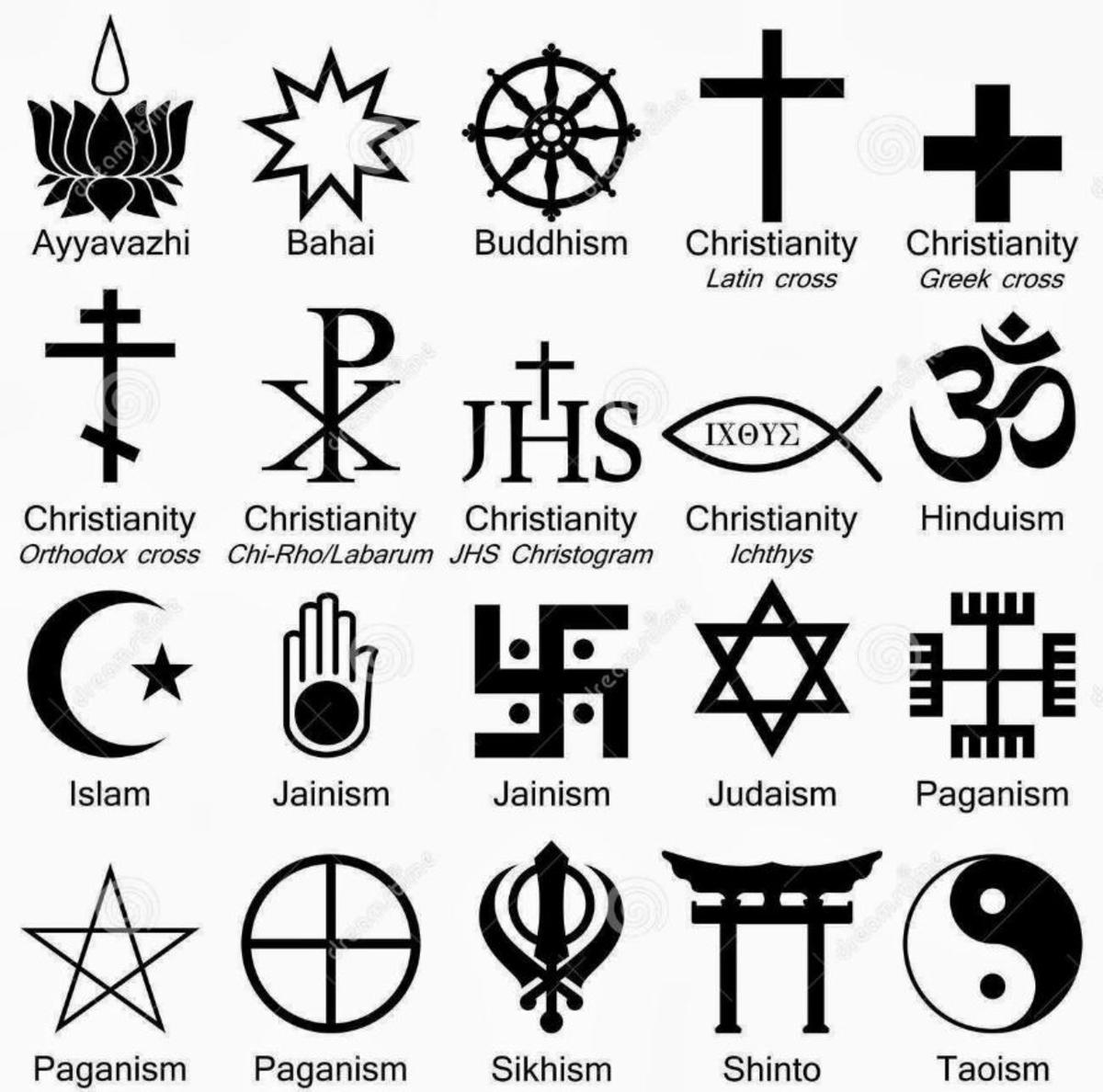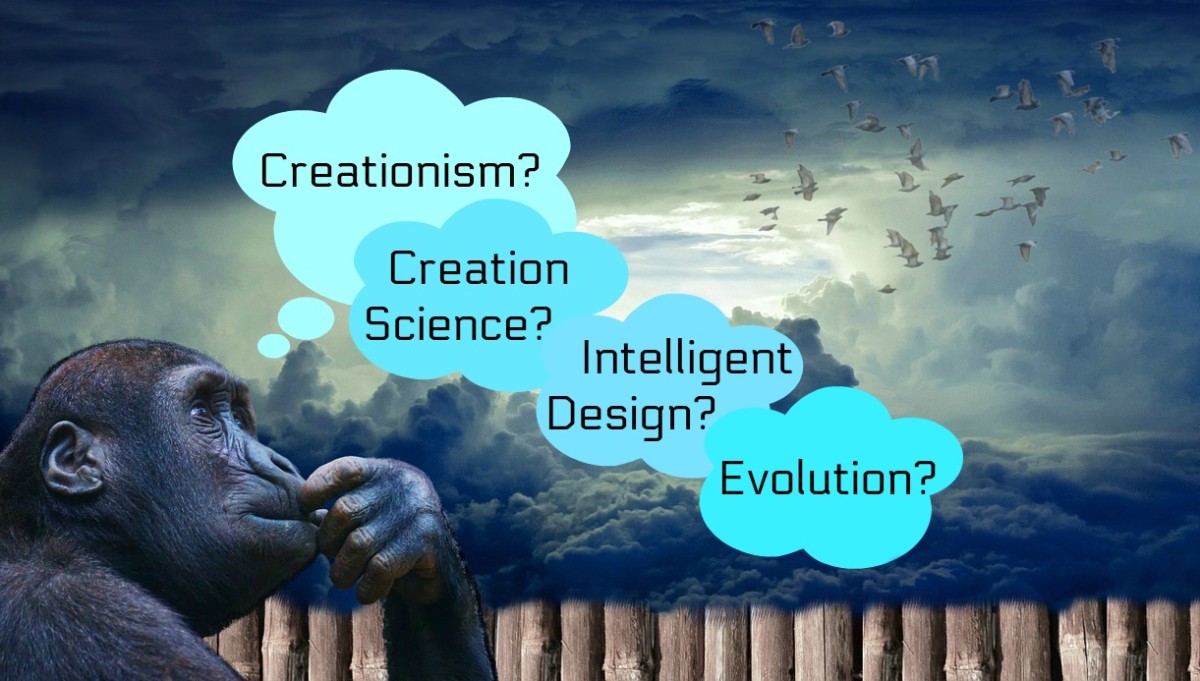Thoughts on Religion and Violence
The Naive Position
We should begin with the naive position that religion is the major cause of violence in human history. I call this position 'naive' not as an ad hominem, but because I don't want to be accused of creating a straw man argument. I don't know if anyone seriously and thoughtfully holds this view as I will articulate it. I do know that it's a notion that is often implicitly expressed or skirted around in lectures and debates involving Christopher Hitchens and Richard Dawkins. It's also a position I have seen non-celebrities espouse in online discussions. I never participate in online discussions of religion and skepticism. It's a mug's game. This article reflects only a thought that occurred to me while observing these discussions. It's a thought I've never seen raised and one that should be raised for the consideration of both sides of the issue. I am an atheist. I am a subscriber to the JREF newsletter. I am most of all concerned with what's true and not with what supports anyone's socio-political goals. That's why I must write, perhaps naively stepping into a trap, about this particular naive position.
The naive position is roughly this:
1. Human civilization consists in the exercise of reason.
2. Reasonable people live in peace and mutual respect.
3. Throughout history religion has been involved in just about every major breach of peace and mutual respect.
4. Religion is therefore unreasonable.
5. Religion has therefore been the major impediment to civilization.
6. In conclusion, were there no religion, we would be much more civilized.
So the naive position is that religion has to go because it has been the at the root of civilization's retardation throughout history. This position is naive for several philosophical reasons. It's not clear how 'reason' and 'civilization' are even being defined in such a view. But for our purposes this will do. Moreover, it is doubtful anyone has ever set it out to his or herself in quite these terms. The essence of the position is in the third premise. The others are mutable. But the third will always roughly remain: throughout history, religion has been a force for evil.
Favourites in the Philosophy of Science
Being Scientific
I'm sure there are many ways of tackling the 'naive position.' But it is particularly that third premise with which my thought is concerned, because it's the one that will be found even in not-naive formulations of the same basic position. My problem with the premise is a scientific one. My problem with those who express (implicitly or explicitly) the naive position is that they are usually championing rationality and science. If they do care about rationality and science, they should certainly take my little thought to heart. No matter how much their theory may please them, when the facts get in the way, good scientists revise the theory. This is not unique to scientists. Indeed, it is a feature of all rational people. When we noticed whales giving birth, we had to admit they're not fish. So what we have to question is whether we have sound data for that third premise.

The Data
The data is evident, they would urge me. The Crusades, the Inquisition, the witch-burning trials are the tip of the proverbial iceberg in the violent history of humanity. Millennia of sexual repression, exploitation, penances, wars, and terrible medicine are all the cause of religion. Some of these points are unarguably true. Between Augustine and Rene Descartes, very little science, philosophy, or art flourished. It's called the Dark Ages for a reason. It's not a legacy of which Christianity is to be proud, for sure. But the data does not give any indication of necessity, only of sufficiency. Religion did just happen to be the cause of civilization's impediment. Can it be shown that Christianity had to impede civilization? Can it be shown that the absence of Christianity would have necessarily been better? These may seem like over-demanding questions. However, they're important. It doesn't matter how annoying the facts are, they must be taken into consideration.
The data we have is simply not good enough to address these questions. From our first glimpses into civilization we find ceremonial burial at the least. From recorded history onward to the present date religion has always been an integral part of human existence. There is no period in history to which we can turn to seriously study a state of no-religion. Even in the most amateurish experiments, we know we need control groups. If you give one set of fruitflies a gene and a banana, you need a set of fruitflies either with that gene and no banana or without the gene and with the banana. This is necessary for comparison of data. If we can't compare a history of humanity with religion with a history of humanity with no-religion, whence comes the data to corroborate the naive position's hypothesis?
Religion and Values
The fact that religion has always been around is far more important than it even appears. Religions are instances of what John Rawls calls comprehensive doctrines. A comprehensive doctrine is a belief system or ideology that affects the whole of a people's way of living. It is a value, or contains values, that are too important to be set aside. It is inseparable from all they do. Religion is a particularly powerful comprehensive doctrine just because it concerns one's ultimate destiny. In most religions, life is temporary but a soul goes on permanently. So for the religious religion is a value that has significance for all they do. There is no activity in which religion won't play a part. This includes wars and various political machinations.
So, even the data we have about the history of the world with religion is faulty. Religion is such a pervasive comprehensive doctrine that it will of course be found in all human activity in religious societies and will often be used as a justification. We are in no position, in regards to the data, to say whether religion was a cause of the atrocities or merely present as a comprehensive doctrine must be. We can't say whether religion is a cause or merely accidentally present. The cause may be any number of things, from political scheming to mere irrational passions. (The war on Troy was, after all, caused by lusting for Helen.)
Commies, Etc.
Often in discussions of religion as a force for violence the issue of Communist societies gets raised. Every instance of Communist/Socialist revolution has resulted in atrocities: Stalin, Pol Pot, Mao, Hitler, Mussolini, and Franco. This point is often brushed aside as irrelevant. I think we see now that it is extremely relevant. These societies really do offer the only data we have of truly non-religious societies. I think this data too is faulty simply because: (a) These societies still inhabit a world and history replete with religion; (b) Communism is a comprehensive doctrine that has been present in all of these instances. But it is nevertheless true that religion isn't present in these societies. So not only does violence continue in non-religious societies, but in the only instances we have, the atrocities are worse! This doesn't prove anything about religion. It does however corroborate the hypothesis that is not religion that is responsible for atrocities throughout history. We await more data.
Summing Up
To summarize, my little thought has been to question whether we have the data to corroborate the position that "Religion has been a major impediment to civlization." The third premise of the naive position is true: religion has been involved in nearly all pre-twentieth century atrocities. But then, so has politics, sex, technology, and cookery. You can find a toothbrush in the home of just about any school shooter, but it doesn't mean brushing his teeth is responsible for his violence. The paucity of data we have leaves us in the position of being unable to make any claims, affirmative or negative, about religion as a force for violence or moral evil. We simply have to await the data. As atheism grows, we may have that data some day. My intention has not been to redeem religion or even to defend it, but to defend reason. And I am only defending it against one particular claim, that "Religion has been a major impediment to civilzation." I merely wanted to point out that in fact we don't know. We don't know if it was religion or more generally human unreasonableness and irrationality, which can express itself in religion as well as in politics or the home, that is the cause of history's barbaric atrocities. Any claim to know is a claim of faith and not a claim of reason.
If you enjoyed this article, you might like...
- Active Atheists
Jane Bovary's look at the New Wave of Atheism. That New Wave is the source of the confusion about violence and religion. - Myth: All Atheists Are Agnostics
How certain must atheists be that there is no God?
Comments
I am aware that this is a contentious article. This may lead to combative comments. I am pleased to see constructive debate, whether in agreement or disagreement with the position I put forward. However, rude comments, hate speech, and Bible preaching will not be approved. I moderate the comments; none will appear until I approve them. I also want to note that I'm too busy to engage in debates. But I will read everything that's written. Thanks for reading.
Cheers!










